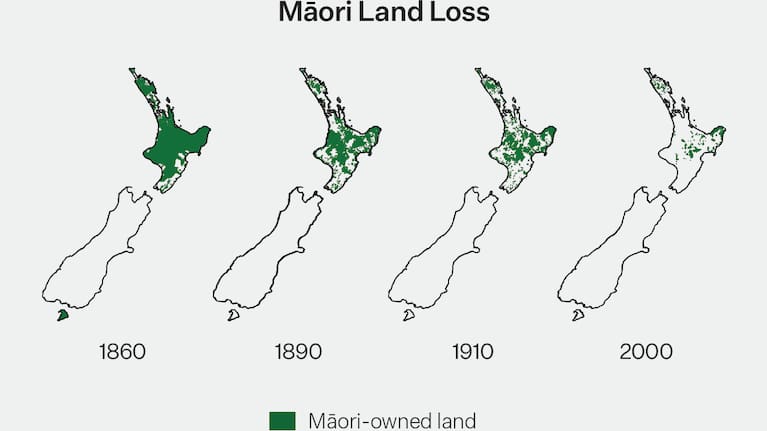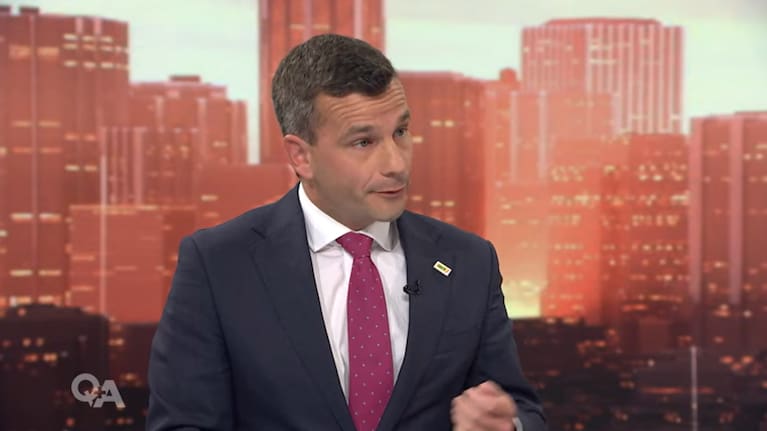The Green Party will push for law changes to return land to Māori during the next term of government, the party has promised in its new Te Tiriti o Waitangi policy.
Announced today, the party said its policy will "return stolen land to tangata whenua".
The party said it wanted to amend the Public Works Act to prevent Māori land "being taken in future and provide a clear path for the return of land previously taken".
Additionally, the Waitangi Tribunal would be able to make recommendations in relation to privately-owned land — when land comes onto the market — an ability it lost in 1993.
Party co-leader Marama Davidson said the new policies would address "ongoing injustices" that Māori experienced today. Meanwhile, ACT has already attacked the Greens' position on private land sales as "a recipe for endless chaos and division".
Davidson said: "The Aotearoa we know today has been built off of Māori land, much of which was wrongly taken through breaches of Te Tiriti o Waitangi over the last 183 years.
"Colonial land theft has caused severe disconnection and locked whānau in poverty, and this has fed ongoing inequities for Māori within the health, education and justice systems.
"Returning land to tangata whenua is the right thing to do to begin to address these inequities."

Other policies officially adopted by the Greens today include removing the 2008 deadline to lodge new Treaty of Waitangi claims and an end to perpetual land leases in order to "return full control of the whenua back to Māori landowners".
Davidson said the party also wanted to organise "a commission of inquiry into land dispossession to investigate land taken through breaches of Te Tiriti o Waitangi".
The three-year commission is proposed to begin next year and have "broad" terms of reference, according to the Greens' policy document.

On its policy to bring back the Waitangi Tribunal's private land recommendations, the party gave a potential example of farming land passed down by settler families.
When the farmland was being sold, the descendants of the original Māori landowners could lodge an urgent claim at the tribunal suggesting the land was "wrongly acquired".
If the tribunal releases a finding that the land was wrongfully acquired, then it may recommend the Crown negotiate to purchase the land to return it as part of redress.
Davidson said New Zealand was approaching the 185-year anniversary of the signing of the Treaty of Waitangi and that now was the right time to "reflect on next steps to ensure the promise of Te Tiriti is honoured and wrongs are put right".
The Green Party's list of Te Tiriti priorities released today comes out of a policy discussion document that canvassed policies last February.
The party's support will likely be critical for Chris Hipkins' ability to form a coalition government following October's general election, with the party's co-leaders hoping to find themselves in a third successive election ending in policy negotiations with Labour.
But the Government has previously rejected some of the Greens' proposals, including allowing the Waitangi Tribunal to make recommendations on privately-owned land.
'Greens are desperate vandals' - Seymour
Responding to the announcement, ACT leader David Seymour attacked the proposal that would allow the Waitangi Tribunal to make recommendations about private land.
Seymour's party has previously said that a referendum on the meaning of the Treaty of Waitangi is a "bottom line" in post-election coalition negotiations.
ACT's support would be critical for any potential National coalition government.
Seymour said today: "The Greens are desperate vandals. This is a recipe for endless chaos, litigation, and division."

He suggested the policy would mean having "Ihumātaos all over the country" — invoking imagery of the 2019 land occupation at a former pā site in Auckland.
"Let's say [Greens co-leader] James Shaw is notified that his house is now subject to a land claim. He will have to seek legal advice and representation to prevent the Waitangi Tribunal from deciding that local iwi have right of first refusal," Seymour said.
"Imagine thousands of property owners suddenly having that over their title.
"The policy would effectively place a lien on private property titles and crash their value. If the Tribunal can place liens over private property, property owners will be forced to go to court to defend their title. The resulting legal chaos will be off the charts.
"This will encourage squatters to occupy private land and try to force re-negotiation, just like what occurred at Ihumātao.
"Under the Greens, we will have Ihumātaos all over the country."


















SHARE ME